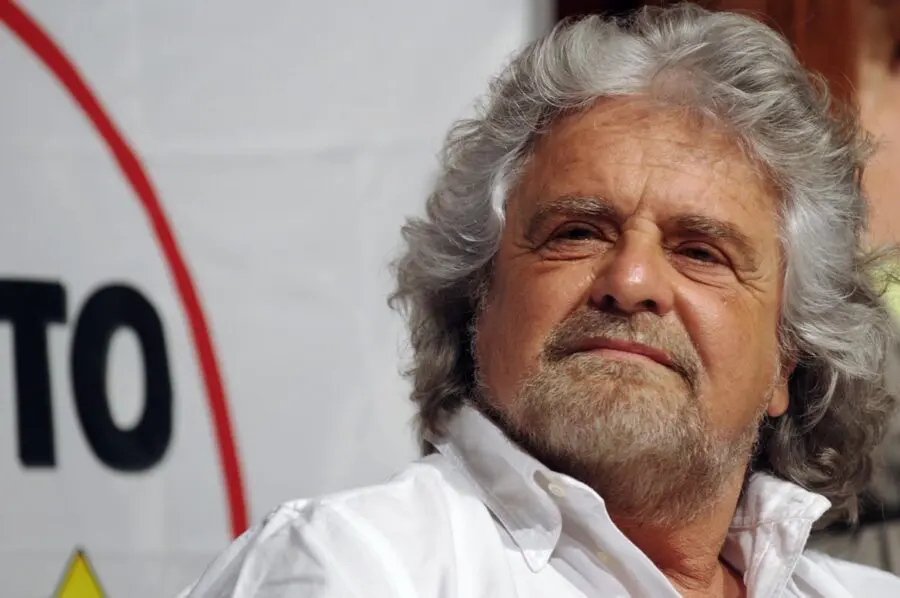 Italy’s anti-establishment 5-Star Movement is campaigning on its own to encourage people to vote “No” in the country’s December 4 referendum and reject Prime Minister Matteo Renzi’s constitutional reform. This is a strategy that they have already used on other occasions, aiming to strengthen the 5-Star “brand” ahead of the next elections due in 2018.
Italy’s anti-establishment 5-Star Movement is campaigning on its own to encourage people to vote “No” in the country’s December 4 referendum and reject Prime Minister Matteo Renzi’s constitutional reform. This is a strategy that they have already used on other occasions, aiming to strengthen the 5-Star “brand” ahead of the next elections due in 2018.
The largest party in the Renzi’s government’s opposition has not joined any of the anti-referendum campaigns launched by other parties for the “No” vote.
Those who think that the M5S push for a “No” vote is simply a defense of the Constitution are wrong. Movement leaders would in fact want to change the text of the Constitution in several places, starting from wanting to scrap a ban on restrictive mandates for parliamentarians, to prevent them to change party and/or parliamentary groups once they have been elected.
The “No” is directly targeted at Renzi’s changes, which they ironically call the “Renzi-Boschi-Verdini” reform (after Renzi, the reform minister and the leader of Ala, a group formed by the former right hand man of ex-prime minister Silvio Berlusconi which is now supporting the reforms proposed by Renzi’s majority).
The M5S bitterly criticize the proposed constitutional reform for “significant centralization of powers in favor of the government. They also take issue with what they call a ‘confused’ bicameralism.
The M5S believes the reform’s plan to abolish direct election for the Senate, combined with the new “Italicum” electoral law regarding only the Chamber of Deputies, assures that the parties and the head of the majority party have “the possibility to directly nominate at least two thirds of parliamentarians,” harming the electorate’s right to vote.
Renzi has already given guarantees that the Italicum will be modified. He wants to modify the law because it envisages a second round of voting and a substantial ”bonus” of seats for the winner, which would actually favor the M5S at the moment.
What really counts however are the political motivations. For M5S this Parliament, elected with an electoral law that has been declared unconstitutional by the Constitutional Court – is illegitimate, and therefore not eligible to rewrite 47 articles of the Constitution.
Behind the battle of principles there is also the political battle against Renzi. In turn he has sought to challenge the movement on their own ground, presenting the reform as a measure that will slash the cost of politics and boost direct democracy.
On Saturday Renzi made an appeal to disappointed M5S voters, taking advantage of some recent events that have overshadowed the movement: the difficulties facing the council of Rome’s M5S mayor Virginia Raggi, and M5S’s involvement in a scandal over fake signatures gathered for local elections in Palermo in 2012, which implicates two deputies among the ten under investigation, and a similar case in Bologna with another four being probed. The leaders of the M5S were forced to intervene, asking the parliamentarians involved to resign. The result was renewed discontent and internal bickering.
The rivalry between Renzi and M5S leader Beppe Grillo escalated this week. Renzi has not missed any opportunity to attack the M5S and has accused supporters of the “No” vote of being “rabble.” Grillo then took the argument to the next level, calling supporters of a yes vote “serial killers who want to make an attempt on the life of our children in 20 years” and even saying Renzi was “a wounded pig.”
The referendum campaign has been chance for the M5S to launch a new tour of Italy, this time by train. It also includes 13 stops around Europe. The last will be Moscow, to confirm the axis with Vladimir Putin, in line with its anti-EU and anti-sanctions against Russia stance.
In terms of the post-referendum phase, the potential prime ministerial candidate Luigi Di Maio has clarified: “if the No wins, we will tell the President of the Republic that we want to go to elections as soon as possible. The No will also flunk the season of brief-term governments,” he said.
But no one, not even in the M5S camp, is thinking of heading to elections in 2017: they also think it is better to reach the end of the legislature, in 2018.
“We are starting to prepare to select the people, if we have to form a government,” Grillo said in an interview with Euronews. “It’s not easy,” he added.
Manuela Perrone, Italy Europe 24
